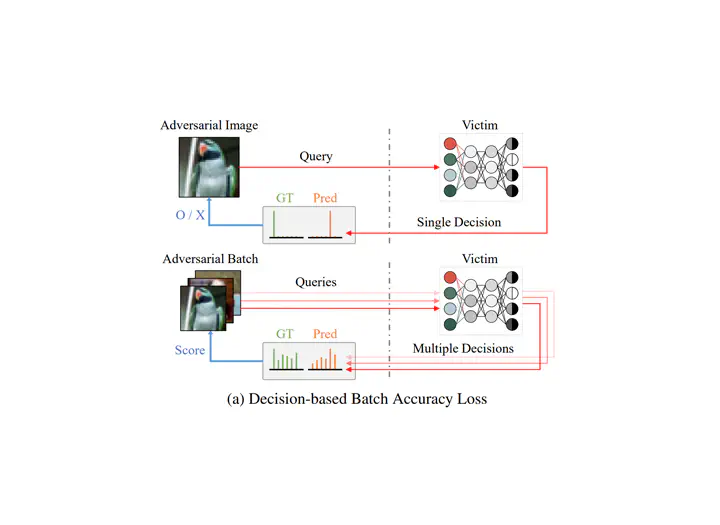D-BADGE: Decision-based Adversarial Batch Attack with Directional Gradient Estimation

Abstract
The susceptibility of deep neural networks (DNNs) to adversarial examples has prompted an increase in the deployment of adversarial attacks. Image-agnostic universal adversarial perturbations (UAPs) are much more threatening, but many limitations exist to implementing UAPs in real-world scenarios where only binary decisions are returned. In this research, we propose D-BADGE, a novel method to craft universal adversarial perturbations for executing decision-based-attack. To primarily optimize perturbation by focusing on decisions, we consider the direction of these updates as the primary factor and the magnitude of updates as the secondary factor. First, we employ Hamming loss that measures the distance from distributions of ground truth and accumulating decisions in batches to determine the magnitude of the gradient. This magnitude is applied in the direction of the revised simultaneous perturbation stochastic approximation (SPSA) to update the perturbation. This simple yet efficient decision-based method functions similarly to a score-based attack, enabling the generation of UAPs in real-world scenarios, and can be easily extended to targeted attacks. Experimental validation across multiple victim models demonstrates that the D-BADGE outperforms existing attack methods, even image-specific and score-based attacks. In particular, our proposed method shows a superior attack success rate with less training time. The research also shows that D-BADGE can successfully deceive unseen victim models and accurately target specific classes.